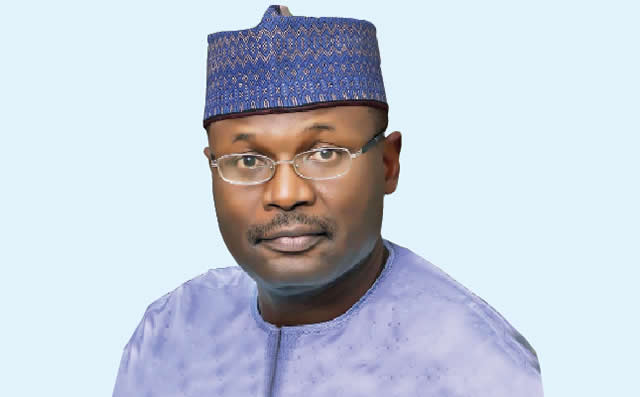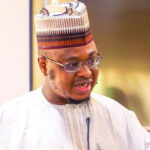
Nigeria is obviously in great danger on all fronts. And that is no exaggeration.
Reading a recent chest-beating declaration of the chairman of the Independent National Electoral Commission, Prof Mahmood Yakubu, I could not but sense the great danger that lies ahead for our nation’s democracy.
As reported, Yakubu confidently told us that multiple voting and rigging are no longer possible in Nigeria. He even went ahead to declare that INEC had “murdered” and “buried” rigging in the country.
To say the least, this statement by the country’s number one electoral umpire is scary. For me, it has the capacity to erode, practically, every hope that this generation of Nigerians will witness genuine, credible elections, anytime soon.
I am compelled to ask if the process Yakubu is showboating was the same he used to conduct the June 18, 2022 election in Ekiti which has imported brand new phrases of “vote buying” and “see and buy” into our political book.
In my view, if a new process has been put in place that is a considerable departure from the June show in Ekiti, Yakubu owes Nigeria clear clarifications.
In the meantime, it is rather uncharitable for INEC to engage in such ululation over an exercise that has greatly vandalised the people’s hope of a credible election in any foreseeable future.
What we saw in Ekiti, on June 18 that actually made voting very lucrative was multiple voting across practically all the local government areas.
Those who had multiple voter cards were seen running from one ward to another for the cash-and-carry election in order to maximise profit. If the system was configured to be foolproof as Yakubu wants the nation to believe, then INEC has questions to answer.
I would not want to insinuate a deliberate manipulation by this umpire, as I have no technical evidence of how it was done; the truth available to us in Ekiti is that there was indeed multiple voting accentuated by direct, open purchase.
Knowing that a responsible system that is committed to free, fair and credible elections would carry out a post-mortem on the Ekiti election of last June and do an honest, thorough self-evaluation of its performance in that state.
It would then be able to pay the much-needed attention to improving on the process as the country prepares for 2023.
That, I believe will yield more useful fruits for the nation than decking itself in false robes.
This is without prejudice to its defence at the ongoing proceedings at the election petitions tribunal sitting in Ekiti challenging the emergence of the All Progressives Congress candidate in the June election, Mr Biodun Oyebanji as winner.
For emphasis, former governor, Chief Segun Oni, is challenging the election of Abayomi in the ongoing tribunal proceeding in Ekiti.
A situation where INEC turns a blind eye to very obvious infractions in our electoral system and gleefully defends what it knows as wrong, what is the fate of democracy in this part of the world?
Much as I am persuaded to believe that the software itself may have the installed capacity to conduct a truly credible election, what appears evident is that INEC deliberately frustrated it in the Ekiti election.
For instance, why has INEC blatantly blocked access of the petitioners to election materials, despite two tribunal orders that access be granted?
Instead, INEC is acting like the Lord of the Manor asking the petitioners to rely solely on the results it published by itself on its own website.
What is required, in a sane system is physical access to the Bimodal Voter Accreditation System machine and other electoral materials, ballot papers (used and unused).
If INEC is sure it has done a good job, it should allow for a thorough, unhindered investigation.
That way, it will know whether the system is perfect and reliable enough or there is need for improvement, not forcing it down the throat of everyone to accept whatever it presents.
An election umpire that purposely takes sides cannot be seen as fair or neutral. Moving forward, INEC will have no difficulty convincing Nigerians and the rest of the world that it is ready to bestow on this country a credible election, come 2023 if it organises an all-parties conference on the issue of BVAS and its entire operations, way ahead of the impending elections.
But, if the Ekiti experiment is what INEC plans to deploy (as it is) in 2023, then our nation’s hope for a credible election that will produce the president, and others of our choice, can only come another day.
I strongly believe that if all else fails, the President, Major General Muhammadu Buhari (retd.), has an opportunity crusted in gold if he can stand his ground and insist on a credible, free and transparent election next year, the type that brought him to power in 2015.
That will not only assuage Nigerians to a great extent, it will also place Buhari on a brighter page of the nation’s history.
But for now, and considering what we have with INEC, it is “Not Yet Uhuru”
- Moses Jolayemi writes from Lagos





